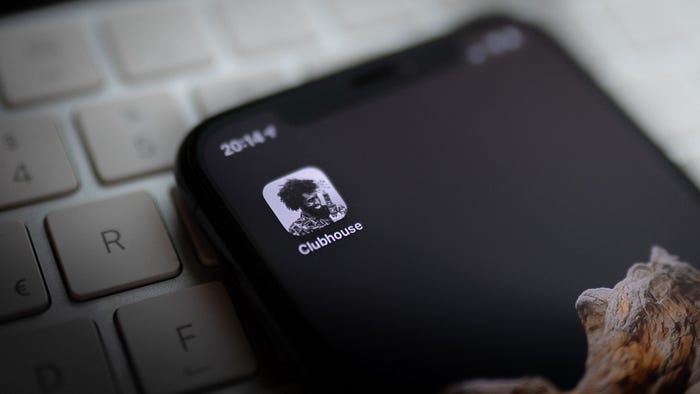Empowering the Black Community: Doctors Counter Covid-19 Myths
Written on
Black Doctors Rally Against Covid-19 Misinformation
Over the past year, Dr. Daniel Fagbuyi has dedicated himself to long shifts as an emergency room physician, treating patients affected by Covid-19, the illness caused by the coronavirus. Recently, he took on an additional role—one that is unpaid.
"I finish my shift, wash up, change my attire, and then log onto the app," Fagbuyi shared, referring to Clubhouse, an exclusive social platform that features interactive audio chat rooms. The app has seen a surge in popularity as people seek connection during lockdowns, fueled by support from its primary investor, Andreessen Horowitz.
Fagbuyi is among numerous Black doctors and healthcare professionals stepping up to combat the spread of Covid-19 misinformation on this platform, which has escalated with an influx of new users. Unlike other social media platforms such as Facebook or Twitter, which attempt to regulate inappropriate content, Clubhouse allows users to manage discussions and decide who can speak in specific rooms.
The Urgency of Addressing Misinformation
Medical professionals from diverse backgrounds are present on Clubhouse, but there is a heightened urgency among Black doctors to counter false information. Erin Shields, a national field organizer at MediaJustice, emphasized, "Black individuals are stepping up as first responders in the misinformation crisis." Some of these professionals have faced intimidation and harassment for their efforts.
Clubhouse has not commented on these issues.
Fagbuyi, who previously worked as a biodefense and public health expert at the U.S. Department of Health and Human Services, was encouraged by friends to join Clubhouse to address rampant conspiracy theories regarding the virus and vaccine safety.
"They told me, 'This is serious; we need you here,'" he recounted. Thus, in November, he purchased an iPhone to begin his volunteer role as a moderator. (Currently, Clubhouse is only accessible on iPhones.)
Since joining, Fagbuyi has explored areas on Clubhouse where he can effectively engage with those open to dialogue. However, some groups resist meaningful conversation, opting instead to promote conspiracy theories and undermine medical professionals.
"I've been accused of being secretly funded by the government to advocate for the vaccine," Fagbuyi noted. "There's definitely a learning curve with this app; you don’t need to approach it as if it's a suicide mission."

The Disproportionate Impact of Covid-19
Covid-19 has had a disproportionate impact on the Black community, with data from the Centers for Disease Control and Prevention indicating that Black individuals are 3.7 times more likely to be hospitalized and 2.8 times more likely to die from the virus compared to White, non-Hispanics.
The spread of misinformation within the Black community is particularly concerning, given a historical backdrop of medical discrimination and malpractice, such as the notorious Tuskegee syphilis study, where Black men were misled about their treatment options for decades.
"As African Americans, we have valid reasons to distrust pharmaceutical companies and the healthcare system," said Jessica Ann Mitchell Aiwuyor, founder of the National Black Cultural Information Trust, which aims to rectify misinformation. "However, we must create space for the truth, and platforms cannot simply allow disinformation to flourish unchecked."
Challenges of Moderation on Clubhouse
Since its launch in March, Clubhouse has become a unique platform due to its live, ephemeral nature, making moderation challenging. The app has seen nearly 5 million downloads, with 3.7 million occurring within the last month, according to Apptopia.
"The experience resembles a blend of talk radio and chat rooms, where counter-speech exists alongside vague moderation policies," explained Renee DiResta, research manager at the Stanford Internet Observatory. "Yet, as these doctors illustrate, counter-speech can be a potent tool."
Aiwuyor referred to Clubhouse as "the new frontier" in social media but criticized it for lacking adequate monitoring. "Anyone can host a conversation about Covid-19 with minimal expert insight, often leading to bullying and harassment of professionals," she remarked. This harassment frequently extends to other platforms, including Twitter.
Some Clubhouse rooms are designed to create conflict between medical professionals and anti-vaccine advocates, resulting in unproductive debates, according to Azza Gadir, an immunologist in Los Angeles who has been active on the app since August.
"When rooms lack proper moderation, chaos ensues within half an hour. It can feel like entertainment rather than serious discourse," Gadir stated.
Finding Constructive Conversations
Despite the potential for conversations to devolve, many doctors and healthcare professionals have successfully engaged in meaningful discussions that change perspectives.
Fagbuyi believes that the auditory nature of Clubhouse fosters a less confrontational atmosphere compared to text-based interactions on other social media. "Hearing someone's voice can reveal their sincerity or deceit," he explained.
Gadir echoed this sentiment, noting that she has received messages from individuals who changed their minds about vaccination after engaging with her on the app.
One such individual is Patrice Withers-Stephens, 38, from Dallas, Texas. Initially skeptical about the vaccine and its rapid development, she had heard troubling rumors, including claims of a microchip being included in the vaccine.
However, a discussion with Gadir shifted her viewpoint. "She truly changed my perspective. She clarified the clinical trials and ingredients of the vaccine," Withers-Stephens said. "As a Black woman, I wanted insights from Black doctors. Clubhouse allowed me to ask questions rather than be a passive listener."
Withers-Stephens received her first dose of the Pfizer vaccine recently. "I've been sharing my journey, telling others, 'I was skeptical too, but look at where I am now,'" she concluded.